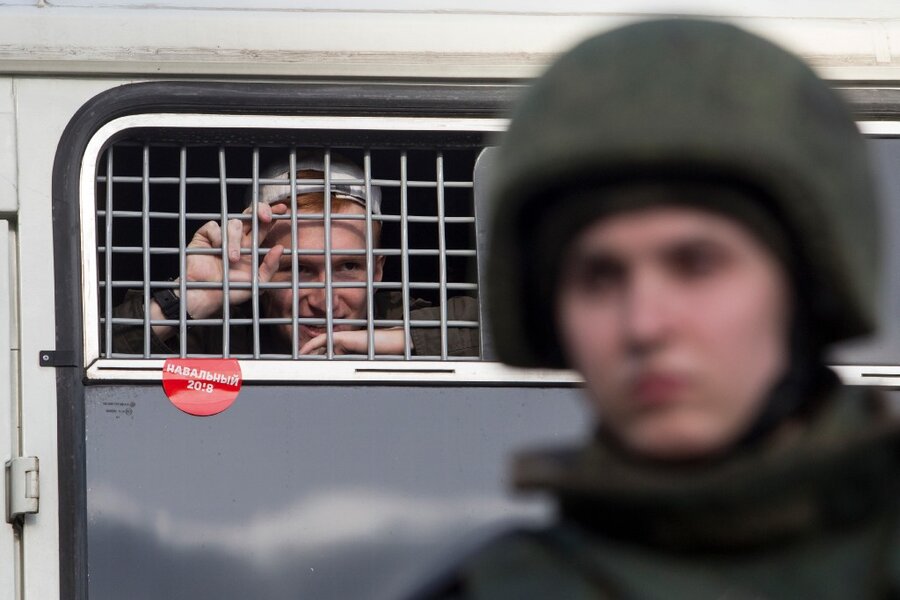Corruption protests sweep Russia
Loading...
| MOSCOW
Thousands of people crowded into Moscow's Pushkin Square on Sunday for an unsanctioned protest against the Russian government, the biggest gathering in a wave of nationwide protests that were the most extensive show of defiance in years.
Alexei Navalny, the anti-corruption campaigner who is leading the opposition to President Vladimir Putin, was arrested while walking from a nearby subway station to the demonstration at Moscow's iconic Pushkin Square.
Navalny and his Foundation for Fighting Corruption had called for the protests, which attracted hundreds or thousands in most sizeable Russian cities, from the Far East port of Vladivostok to the European heartland including St. Petersburg.
The protests were the largest coordinated outpourings of dissatisfaction in Russia since the massive 2011-12 demonstrations that followed a fraud-tainted parliamentary election.
Police estimated the Moscow crowd at about 7,000, but it could have been larger. The one-hectare (2.5-acre) Pushkin Square was densely crowded as were sidewalks on the adjacent Tverskaya Street.
State news agency Tass cited Moscow police as saying about 200 people were arrested.
Russia's beleaguered opposition is often seen as primarily a phenomenon of a Westernized urban elite, but Sunday's protests included gatherings in places far from cosmopolitan centers, such as Siberia's Chita and Barnaul.
"Navalny has united people who think the same; that people don't agree with the authorities is obvious from what is going on in the country today," Anna Ivanova, 19, said at the Moscow demonstration. "I am a bit scared."
Scuffles with police erupted sporadically and the arrested demonstrators included a gray-haired man whom police dragged along the pavement. Police cleared the square after about three hours and began herding demonstrators down side streets.
"It's scary, but if everyone is afraid, no one would come out onto the streets," Yana Aksyonova, 19, said.
The protests Sunday focused on reports by Navalny's group claiming that Prime Minister Dmitry Medvedev has amassed a collection of mansions, yachts and vineyards. The alleged luxuries include a house for raising ducks, so many placards in Sunday's protests featured mocking images of yellow duck toys.
"People are unhappy with the fact that there's been no investigation" of the corruption allegations, said Moscow protester Ivan Gronstein.
In the Pacific port city of Vladivostok, police forcefully detained some demonstrators near the city's railway terminal, in one case falling down a small grassy slope as they wrestled with a detainee.
News reports and social media reported demonstrations in large cities throughout the country, including Novosibirsk, Tomsk and Krasnoyarsk. At least 25 people were reported arrested in Vladivostok and 12 in Khabarovsk.
Some demonstrators showed up with their faces painted green, a reference to a recent attack on Navalny in which an assailant threw a green antiseptic liquid onto his face.







